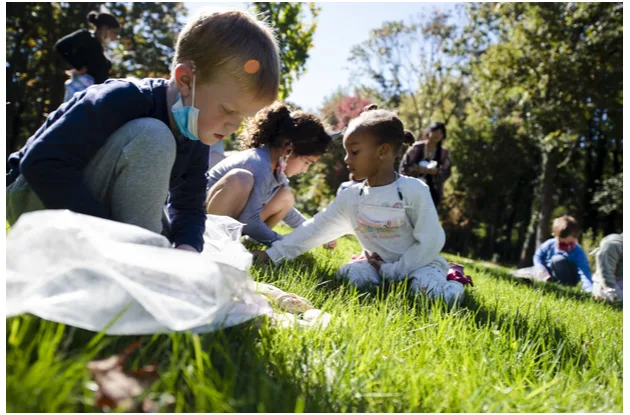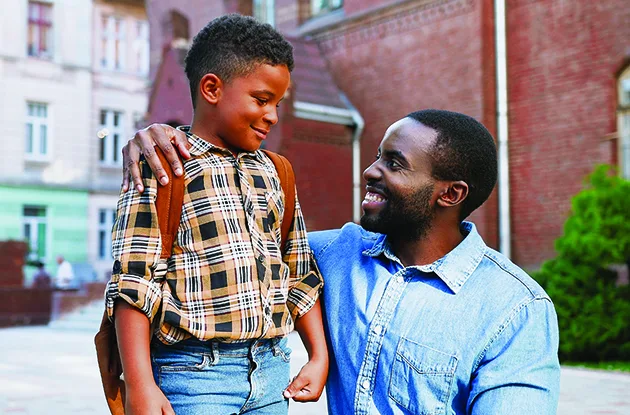New clothes: Check. Hannah Montana backpack: Check. Transformers lunch box: Check. No. 2 pencils, color-coded notebooks, and butterflies in stomach: Check, check, check! A new school year means different teachers, unfamiliar kids, and a whole new routine. This can be stressful for even the most confident, easygoing child-and for parents, too. But work together, and those first days can be a good learning experience for the whole family!

The Elementary Emotions
Back-to-school fears vary with the age of the student, says child psychologist and anxiety expert Anne Marie Albano, of Columbia University. “Younger children fear separating from loved ones, with their main worry being that something bad will happen to [mom or dad] or to themselves,” Albano says.
Albano, who has co-authored a treatment manual and parent guide for school refusal behavior, suggests fighting the fear with a bit of fun. If possible, arrange with your child’s teacher to set up a scavenger hunt in the building, hiding back-to-school items in the classroom, cafeteria, or other spots that will make up the school day. You can set up a hunt at home, too; either way, this will get kids actively involved in the experience on a whole different level. What once felt like a big, scary transition becomes a rewarding adventure.
Young children thrive on routine, and the first few days of school disrupt life as they know it. “They’re used to being home, and suddenly there’s a change in this routine,” says Dawn Matera, co-founder of A Way To Learn, in Westport, Ct. which provides comprehensive educational support to students with learning disabilities, executive function disorders, and children on the autism spectrum. “A lot of our families bring in their kids for tutoring a few weeks before school starts,” Matera says.
Sometimes, putting pen to paper can help erase worried thoughts. “Journal writing is great for all kids. It allows them to express the things they are excited or worried about, through pictures or words,” she says.
Older, Wiser, But Worried Still
Once kids hit middle school, their fears shift focus. “Concerns about embarrassment, humiliation, and social status prevail,” Albano says. “School is a highly socially charged setting where kids make friends, plan their activities, and check out one another.”
Cindy Banks, of Trumbull, Ct. knows something about first-day jitters. Her daughter, Sophie, is in middle school. “All that anxiety,” she says. “She always got nervous in elementary school but it’s worse now that she’s approaching 7th grade.” It has been an entirely different experience than with her three boys. The youngest is a high school senior. “Nicholas won’t talk about being nervous, but he’ll spend an hour in the bathroom on the first day,” she says. “As school goes on, he’ll just throw on a hat and go.”
Middle- and high-school students will benefit from thinking things through and coming up with a plan. If, for example, your tween or teen is worried about making friends, brainstorm good opportunities to socialize during the school day. Problem solving is key at this age, as adolescents have the capacity to think things through realistically, from coping strategies to possible outcomes and ultimate goals.
After weeks of planning and the inevitable first-day frenzy, parents everywhere will be left to ponder perhaps the hardest lesson of all: Even adults don’t have all the answers. “It’s difficult to step back and acknowledge,” says Matera, who has two boys in high school, “but it’s a very overwhelming stage for parents as well.”
Nicole Skolnick of Port Washington, Long Island agrees. As the mother of four prepared to send her oldest son, Dylan, to first grade, she noticed he didn’t seem nervous. “I think I have a tougher time. As a mom, you always worry about your kids-especially in a new situation,” Skolnick says. Her tip for easing anxiety? Listen to a success story. “Once he returns home and tells me about his day, I’ll breathe a sigh of relief.”
Back-to-School Cheat Sheet:
Take note of these expert tips to ease anxiety, provided by Anne Marie Albano and Dawn Matera.
- Start a bedtime or wakeup routine a week or so before school starts
- Prep and organize backpacks
- Read or tackle math problems together
- Role-play social situations that kids might encounter
- Talk to a school counselor or therapist if anxiety continues unabated for three weeks
- Have a positive attitude about school-no matter your past experience as a student
- Acknowledge that most kids are nervous about the first days back but then feel better as they begin to learn and make friends





















